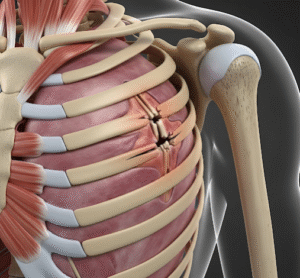Overview
Cirrhosis is a chronic liver disease characterized by scarring (fibrosis) of the liver tissue, which gradually impairs liver function. In Korea, specialized hepatology and gastroenterology centers provide early diagnosis, comprehensive management, and treatment to prevent complications such as liver failure or liver cancer.
What is Cirrhosis?
Cirrhosis occurs when the liver is damaged over time due to chronic inflammation or injury, leading to irreversible scarring. The liver loses its ability to perform vital functions, including detoxification, protein synthesis, and regulation of blood clotting. Early detection and lifestyle interventions are crucial to slow disease progression.
Symptoms
- Fatigue and weakness
- Loss of appetite and unintended weight loss
- Nausea
- Abdominal swelling due to fluid accumulation (ascites)
- Jaundice (yellowing of skin and eyes)
- Itchy skin
- Easy bruising or bleeding
- Confusion or difficulty concentrating (hepatic encephalopathy)
- Swelling in legs and ankles (edema)
Causes
- Chronic hepatitis B or C infection
- Long-term alcohol abuse
- Non-alcoholic fatty liver disease (NAFLD)
- Autoimmune hepatitis
- Genetic liver disorders (e.g., hemochromatosis, Wilson’s disease)
- Bile duct diseases causing cholestasis
Risk Factors
- Chronic viral hepatitis infection
- Heavy alcohol consumption
- Obesity, diabetes, and metabolic syndrome
- Family history of liver disease
- Prolonged exposure to hepatotoxic drugs or toxins
- Autoimmune or genetic liver disorders
Complications
- Liver failure
- Portal hypertension (increased blood pressure in the liver)
- Variceal bleeding in the esophagus or stomach
- Ascites and fluid retention
- Hepatic encephalopathy causing confusion and coma
- Increased risk of liver cancer (hepatocellular carcinoma)
- Infections due to immune dysfunction
Prevention
- Vaccination against hepatitis B
- Avoiding excessive alcohol consumption
- Maintaining healthy weight and managing metabolic conditions
- Safe practices to prevent hepatitis C infection
- Regular monitoring for individuals with chronic liver disease
Treatment Options in Korea
Treatment aims to slow disease progression, manage complications, and improve quality of life:
- Medications:
- Antiviral therapy for hepatitis B or C
- Diuretics for fluid retention
- Medications to reduce portal hypertension
- Nutritional supplements and vitamins
- Lifestyle interventions:
- Alcohol cessation programs
- Low-sodium diet to manage fluid retention
- Weight management and diabetes control
- Procedures and advanced interventions:
- Endoscopic treatment for variceal bleeding
- Paracentesis to remove excess abdominal fluid
- Liver transplantation in end-stage cirrhosis
- Specialized hospitals in Korea:
- Samsung Medical Center, Seoul National University Hospital, Asan Medical Center, Severance Hospital
- Multidisciplinary teams including hepatologists, surgeons, dietitians, and transplant specialists
- Follow-up care:
- Regular liver function tests and imaging
- Screening for liver cancer
- Management of complications and lifestyle counseling













